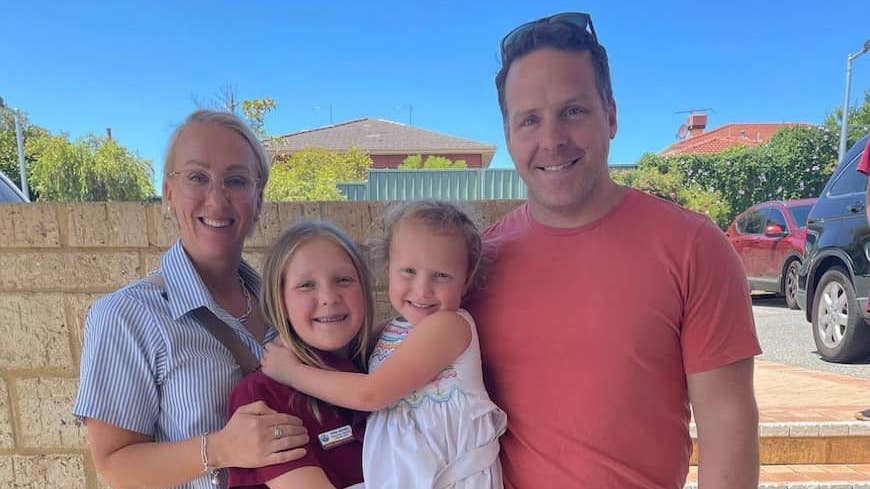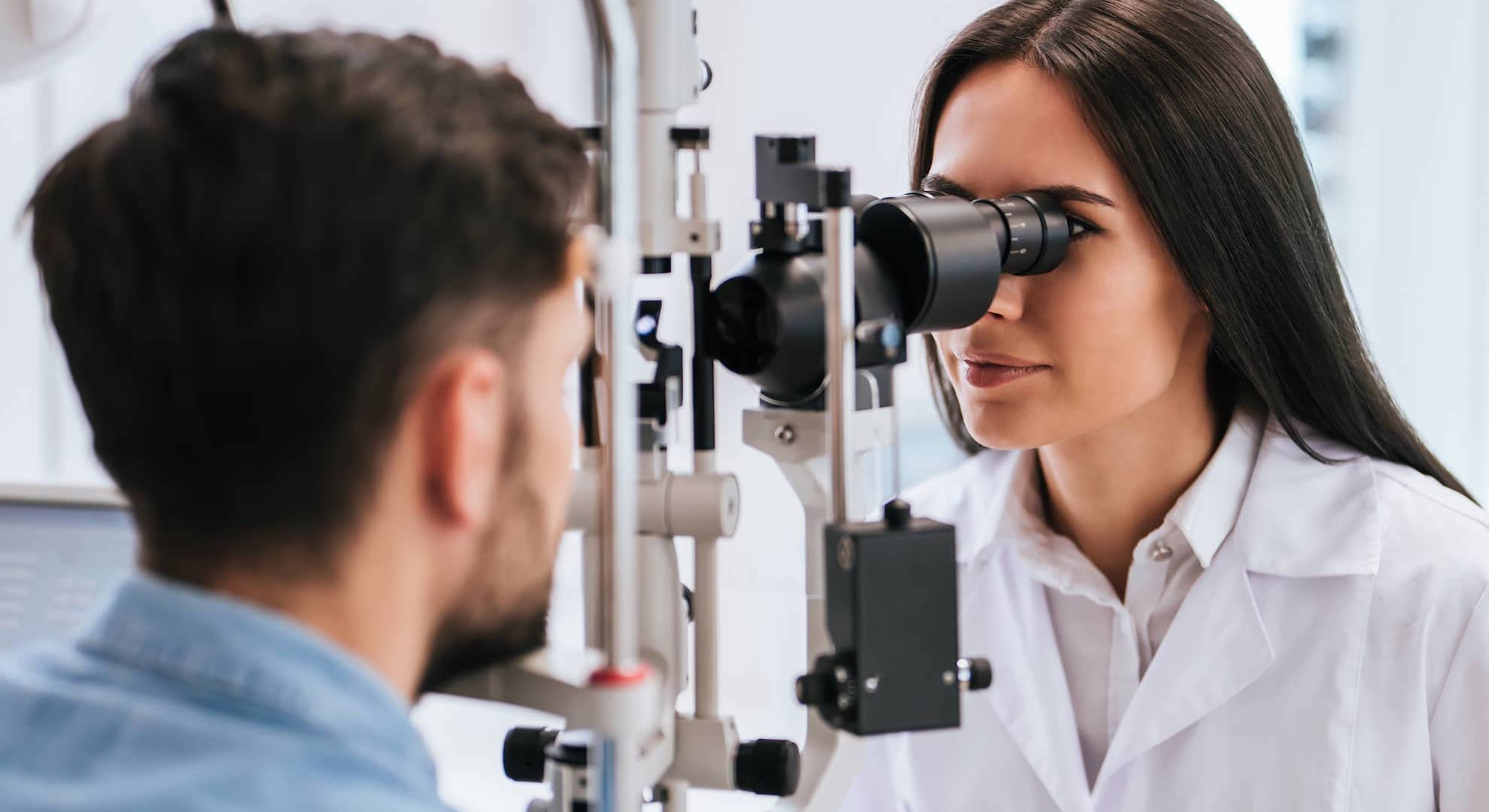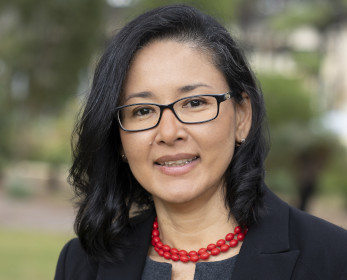A trip to Specsavers is rarely, if ever, a life changing event — but for Kate James and her family, a recent eye test saw their world turned upside down.
Kate's husband and father of her four children, Rhys, went for a routine optometrist appointment at the local shops expecting, at worst, to be told he needed glasses.
Instead, they discovered a partially detached retina, which a later trip to a specialist revealed was due to a rare form of eye cancer known as ocular or uveal melanoma.
"We didn't even know you could get melanoma in the eye," Kate said.
"I'm an orthopaedic nurse and I'd heard of a cancer developing secondary growths in the eye, but never starting there.
"It's just been a massive curveball for us."
 Kate and Rhys James became aware of ECU's work to develop a blood test that can detect rare eye cancer sooner.
Kate and Rhys James became aware of ECU's work to develop a blood test that can detect rare eye cancer sooner.
In researching the condition, Kate became aware of Edith Cowan University's (ECU) work in uveal melanoma, which aims to develop a simple blood test as a less intrusive way to diagnose the disease and detect it earlier.
To help the cause, Kate will participate in the upcoming Cape to Cape mountain bike race in Western Australia's South West to raise money, with all funds to be donated to ECU's research.
"They're pretty much the leading researchers in this field, which is phenomenal to have in our backyard when we’ve just received this diagnosis," she said.
"They're doing so much work, so if we could help someone else to go through this process easier, it's worth it."
Safer and easier
Uveal melanoma affects roughly 150 Australians per year and can often require several intrusive and risky procedures to diagnose and treat it.
For Rhys, this meant his eye muscles being detached and a radioactive disc placed directly onto the tumour for three days.
"They also took a biopsy while they were doing the procedure, and it was only then we were able to find out it was definitely melanoma," Kate said.
ECU's Centre for Precision Health is looking to reduce this risk and invasiveness by developing a blood test to detect and diagnose melanomas far earlier.
ECU Associate Professor of Cancer Research Elin Gray said early diagnosis was crucial.
"Half of people diagnosed with uveal melanoma will have the cancer spread to other parts of the body — and of those with detectable spread, 92 per cent will die within two years," she said.
"Therefore, it is important to determine which patients fall within this 50 per cent for closer clinical follow-up and early treatment to prevent the spread of the cancer.
"Fortunately, those who sit within this 50 per cent have specific genetic mutations that can be observed, enabling early intervention."
Professor Gray said a blood test could easily be repeated and would be less intimidating than the current diagnostic procedure.
"Right now, it's risky: complications can totally or partially impair vision, and the test can't be repeated if results are deemed inconclusive due to insufficient sample or degradation.
"Considering the risks, many patients decline the procedure."
The next test
The Cape to Cape is a gruelling four-day mountain bike stage race covering 200km and climbing 2500m.
This year will be Kate's first attempt and given her relative lack of mountain bike experience, she is under no illusion as to the physical challenge ahead.
She was already planning on participating in the race to raise money for charity, however her husband's diagnosis made it easy to decide to donate the funds to ECU.
"After all this happened, I thought if I'm going to raise money for someone, it should be for him," she said.
"We're still going through it all and with four young kids… it's very scary.
"So, anything to help the work being done is just worth it — and you never know when the next breakthrough might come."
To donate to the cause, visit Kate's fundraising page on the ECU website.

 Kate and Rhys James became aware of ECU\'s work to develop a blood test that can detect rare eye cancer sooner.
Kate and Rhys James became aware of ECU\'s work to develop a blood test that can detect rare eye cancer sooner.



